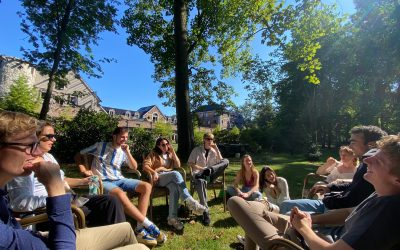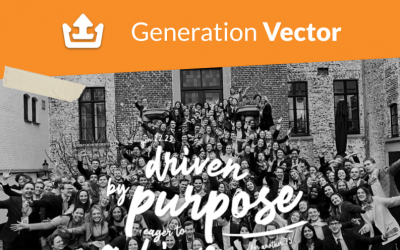Someone, please, call 112!
The telephone rings at the police department. Detective Dave answers the phone and he is told to come to a precinct at Warandelaan 2 in Tilburg. After a quick ride, he arrives and gets informed about the committed crime. Apparently, a guy got killed during office hours at his own workplace. Detective Dave enters the precinct and inspects the room. At first sight, everything seems quite normal, a desk with some loose papers, a laptop, some pictures of the victim’s family, a calendar, and a lot of blood. However, when Dave inspects everything a bit more in detail, he notices that there are some numbers written in blood on the calendar. After further inspection, he makes up a 6, a 4, a 9, a 10 and an 11.
After interviewing the victim’s co-workers, there are a few possible suspects. First of all, there is David who was after the victim’s job, Julie, who used to go out with the victim, Jason, who used to be friends with the victim, but this friendship ended once the victim started dating Julie. Lastly, there is Sofie, who found the victim. After looking at all the clues, Dave figured out who the killer is.
Can you?
Think outside the box
Maybe you found this riddle quite easy to solve, or maybe it took you a bit longer. No matter how difficult it was for you, in the end, you probably got to the answer. Solving riddles is something for which you oftentimes have to think outside of the box for, to get to the solution. That is because the answer is often less obvious at first glance. However, once you know what the answer should be, the equation often seems quite easy.
Even though there is only a single answer possible for this example, in many real-life cases, there are often multiple answers possible for one question. People that are solution-oriented tend to find solutions for things that are quite difficult, and are still able to come up with solutions that provide a clear and quick solution as humanly possible. They tend to think very critically and don’t take answers for granted, but keep asking the ‘why’ question.
People, task, or solution?
Often times, people describe themselves as either people-oriented or task-oriented, rather than solution-oriented. However, being solution-oriented is a very valuable skill that can be useful outside and inside of the business world.
And even though some people are naturally more solution-oriented than others, I believe that you can easily train yourself to become better at being solution-oriented once you start questioning (simple) things more often.
The answer to the riddle is Jason
This post was written by AIESEC in the Netherlands. We offer international voluntary projects and professional internships with the aim of developing leadership in youth.













